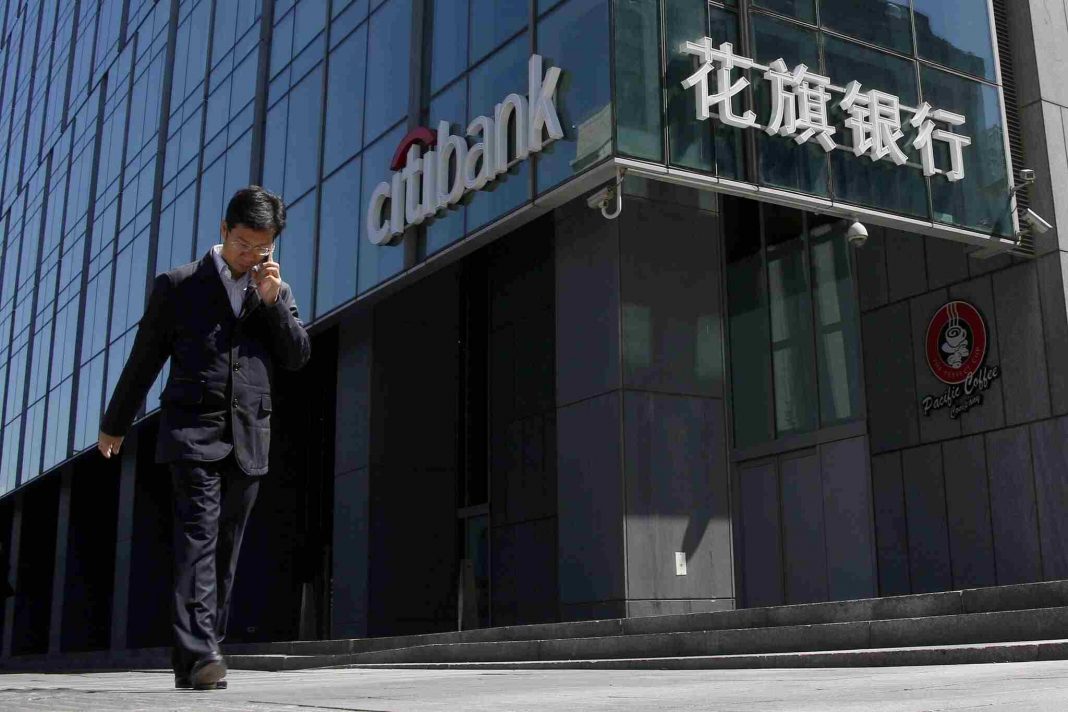For decades, American financial institutions have been keen to grow their operations in China, the world’s second-largest economy behind the United States. As a mounting corporate debt problem threatens to disrupt the country’s financial system and China’s central government adopts a more assertive stance against large corporations, they are finally getting their way.
After receiving licence to launch a custody business in China in July, Citigroup became the first international bank to do so. The company will effectively function as a bank for Chinese investment funds. In August, the Chinese government granted JPMorgan Chase permission to fully acquire control of its investment banking and trading operations in the nation, more than a century after the bank first established a presence in the country. In October, Goldman Sachs was given the go-ahead to launch a similar enterprise.
Immediately after the permits were received, the message from Beijing was very clear: the Chinese government desired that U.S. lenders attract more international investors into China and assist Chinese citizens in purchasing properties abroad.
Thrilled by the prospect of no longer having to share earnings with local partners for activities such as underwriting stock transactions or offering advise to businesses, Wall Street banks are scrambling to comply. Among their ambitions are to broker more deals, assist Chinese enterprises in raising financing, and handle money for the country’s fast rising moneyed elite. China’s 100 wealthiest persons boosted their combined net worth to $1.48 trillion in 2021, up from $1.33 trillion the previous year, according to Forbes magazine.
Wall Street banks are gaining momentum in China at a time when the country is experiencing a real estate bubble burst and its financial system is starting to buckle under the weight of a years-long debt-fueled corporate expansion. Because of its over $300 billion in outstanding debts, the property developer China Evergrande has become the poster child for the country’s financial woes.
However, despite the fact that Evergrande barely avoided defaulting on its bonds last month, the company’s precarious position is spreading concern among other developers, which might have ramifications for the rest of China’s economy. And, although the debt crisis may open the door to new financial possibilities, it also brings with it an element of uncertainty.
In accordance with the terms of a trade deal with the Trump administration, China has agreed to relax limitations on foreign ownership of financial services businesses in the financial sector. However, according to Dick Bove, a senior banking analyst with Odeon Capital Group, the nation could just as easily restrict such companies from doing business in the country.
Banks must also take into account the tense relationship that exists between the United States and China, despite the fact that their economies are tightly intertwined. According to the Office of the United States Trade Representative, China was America’s top trade partner in goods last year, with $559.2 billion worth of commodities moving hands between the two countries. It was the third-largest market for exports of products from the United States.
Although a trade war has been ongoing since President Donald J. Trump placed tariffs on a wide swath of Chinese items in 2018, the flow of goods and services has remained uninterrupted. President Biden and Chinese President Xi Jinping conducted a virtual conference on Monday amid disagreements about trade, cyberthreats, and Taiwan, among other matters.
A group of six senior Wall Street banking executives, who declined to speak publicly about some aspects of their business because of political sensitivity, said that, while they welcomed China’s latest steps toward financial opening, they were acutely aware that the Chinese government could revoke their permission to conduct business at any time. They pointed out that their companies had alternative Asian locations, such as Singapore or Tokyo, in case they needed to pivot away from the Chinese mainland in the future.
Chinese authorities’ crackdown on technology firms, notably the ride-hailing behemoth Didi, the internet behemoth Tencent, and the e-commerce behemoth Alibaba, have been highlighted by bankers as examples of additional policy changes that might cause concern among international businesses and investors. Mr. Xi’s “shared prosperity” drive to close the country’s wealth disparity, which has put many local tycoons on notice, is also a source of concern for international corporations operating in China.
Bank of America, which has been slower to establish a presence in China than its competitors, is to seek for authorization to open a brokerage in the country. Morgan Stanley is awaiting approval from Chinese authorities to boost its ownership stake in its Chinese securities subsidiary to 90 percent from 50 percent. In addition, the bank is attempting to increase its interest in a fund-management joint venture from 50 percent to 85 percent.
Citigroup is concentrating its efforts on growing its wealth management business. Despite the fact that it is closing parts of its consumer banking operations on the continent, Citi plans to expand the number of employees in its private bank in Asia and focus on servicing rich customers, particularly in China, according to Ida Liu, Citi’s global head of private banking.
Banks in the United States are similarly optimistic about the prospect of selling financial goods to China’s burgeoning middle class, which is looking for alternatives to traditional real estate investments. Household wealth in China is connected to real estate to the tune of over three-quarters, and the country’s debt-ridden housing sector is increasingly considered as a danger to the economy.
Investors are being warned not to interpret the Chinese government’s policies as inherently “anti-capitalist,” according to Ray Dalio, the founder of Bridgewater Associates, the world’s biggest hedge fund. As he has said in media appearances and a LinkedIn article published in July, diversified portfolios should contain assets in both the United States and mainland China.

